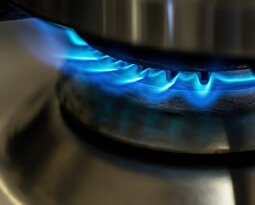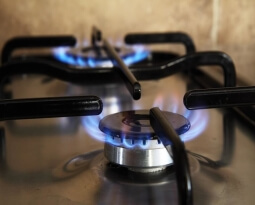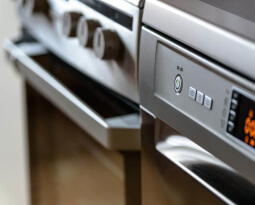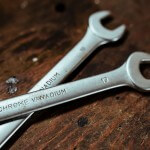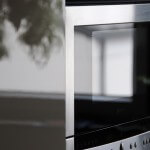Some of the major costs of running a restaurant come from the commercial kitchen equipment. Food prep represents about 30% of a restaurant’s annual budget, with commercial refrigeration units running somewhere about half of the budget, and water heaters, commercial kitchen range, vent and exhaust hoods, and heating and air conditioning units make up much of the rest of the commercial kitchen budget. These huge costs are necessary in the food service industry, and unfortunately have been increasing in recent years.
Simple changes to your commercial kitchen, such as pushing cooking line appliances as close to the ventilation hood as possible, fixing water leaks, and setting water heaters to proper temperatures can save energy with little investment. In addition to lowering energy costs, efficiency improvements can also enhance the comfort, appearance, and ambience of your establishment.
Other things to consider when trying to increase the efficiency of your commercial kitchen:
Use Energy Efficient Commercial Kitchen Equipment
There’s a growing number of energy efficient commercial kitchen equipment, and your kitchen should be equipped with such if you wish to cut costs now, and in the future. High efficiency commercial kitchen equipment can save thousands of dollars per year in energy and water costs. There are rebates and tax credits available in some states for energy efficient commercial kitchen equipment, so even if you’re not in the market for new commercial kitchen equipment, you might think about having an energy efficient replacement plan in place in case of commercial kitchen equipment failures.
Maintain Your Commercial Kitchen Equipment
Besides using the right commercial kitchen equipment, maintaining your equipment is also important to keeping kitchen equipment working efficiently. Scheduled maintenance is probably the best way to stay on top of caring for your commercial kitchen equipment. Regular equipment cleaning, new air filters when necessary, checking seals and gaskets regularly – all can have a big impact on the longevity of your commercial kitchen equipment, not to mention help maintain energy efficiency. Most commercial kitchen equipment comes with their own service manual with recommended cleaning and maintenance schedules.
Because refrigeration costs make up a large portion of commercial kitchen budgets, pay close attention to your commercial refrigeration systems. Dirty coils on refrigeration compressors make the cooling units works harder and longer to keep the unit cool, which consumes more energy and can lead to malfunction. Cleaning coils regularly (recommended monthly) and dusting the components on a weekly basis may help to maintain the efficiency of the commercial refrigeration unit. Note your owner/service manual for more maintenance tactics for your commercial refrigeration unit.
Water Efficiency for your Commercial Kitchen
Conserving hot water will help lower your heating bill and your water bill. Only wash fully loaded dishracks. Commercial dishwashers will work the same and use the same amount of water no matter how many dishes are in the rack. Use cold water whenever possible. Don’t thaw food under running water. Use a little foresight and put the food in the refrigerator to thaw.
Water leaks may be the most unexpected and detrimental issues in commercial kitchens. When you notice a leak, be sure to have it repaired immediately to avoid unnecessary water waste.
Keep an Eye on Your Commercial Heating & Cooling System
Although invisible, the air in your commercial kitchen has an impact on the efficiency of your commercial kitchen equipment. Investing in an energy-efficient air conditioning units and ventilation hoods can thousands of dollars each year. Properly cleaning your ventilation hoods is a must. Grease and dirt build up in the unit causing it to work harder and use more energy. In addition, programmable thermostats can be used to save energy costs as you are able to turn off the air when it is not needed.
Rearrange Your Commercial Kitchen Equipment
Separate your cooling equipment, like your commercial refrigerators and walk-in freezers from your cooking equipment. Cooling equipment must work harder around hot appliances, so group together your heating appliances, such as the broilers, steamers, grills, open burners, etc. Also make sure to put the heating equipment as close to ventilation units as possible.

